Table of Contents
- Understanding Chihuahua Breed Standard
- Identifying Chihuahua Characteristics
- Assessing Lineage and Pedigree
- DNA Testing for Chihuahuas
- Mixed-Breed Chihuahuas
- Final Thoughts and Tips
Chihuahuas are a popular dog breed known for their small size, unique features, and loving demeanor. When considering adopting or purchasing a Chihuahua, you may want to know whether the dog is a purebred, as this can have an impact on the pup’s health, behavior, and appearance. Also, if you ever want to show your dog, or breed them, this is something you need to know.
Identifying a purebred Chihuahua can be challenging, as mixed-breed dogs may possess similar traits.
To determine if a Chihuahua is purebred, there are several factors to consider, including physical characteristics, pedigree papers, and DNA testing. Comparing the dog to the American Kennel Club (AKC) breed standards and consulting with a veterinarian or breed expert can also provide valuable insights.
In this article, we will explore various methods for identifying whether a Chihuahua is a purebred, ensuring you have accurate information when selecting a new canine companion to just if you are curious about a chihuahua you already have.
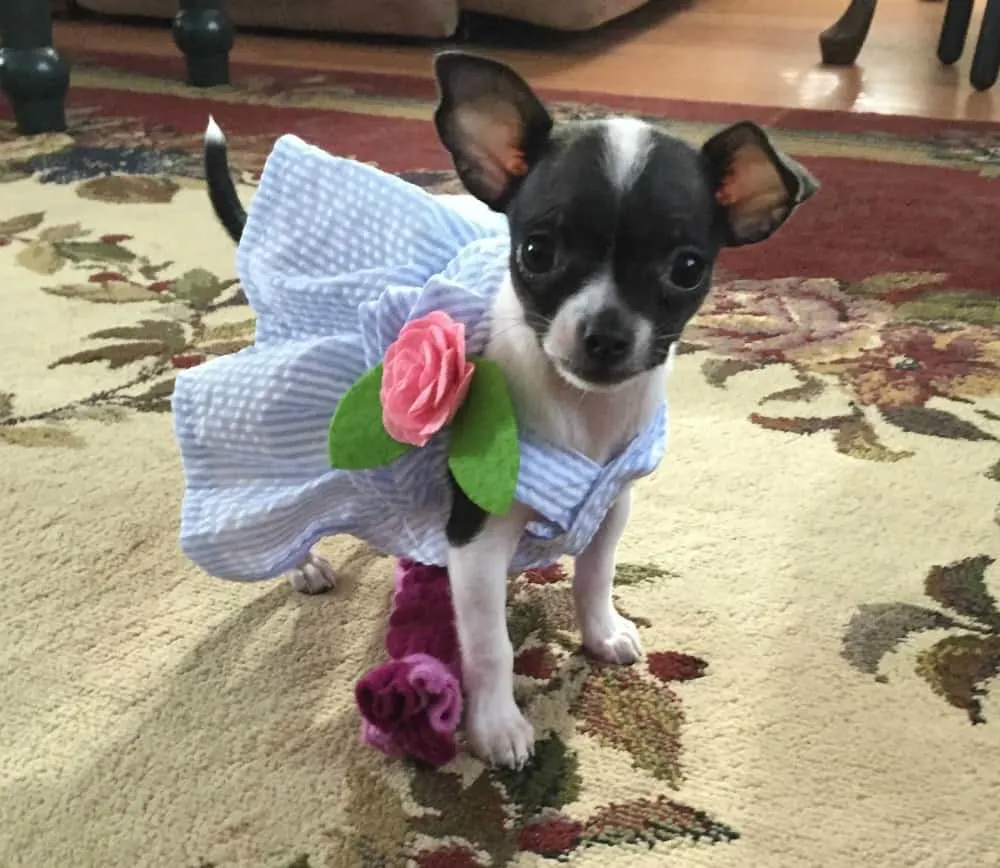
Understanding Chihuahua Breed Standard
The American Kennel Club (AKC) has set specific breed standards for Chihuahuas that can help you determine if your pet is purebred. These standards include various characteristics like size, head shape, ears, eyes, coat type, color, and tail. Let’s discuss these features in detail.
Size
Purebred Chihuahuas are small, graceful dogs that weigh no more than 6 pounds as per the AKC’s breed standard. Their height is not specified, but they generally don’t exceed five inches tall at the shoulder when they reach adulthood.
Head Shape
The head shape of a Chihuahua can be a distinguishing feature. The AKC categorizes the Chihuahua’s head as an “apple” shape, which is round and domed. This apple-shaped head is a hallmark of the breed.
But deer-head chihuahuas can be purebreds too. They just cannot compete in dog shows since they don’t conform to the standard that the AKC recognizes.
You can read more about how to determine your chihuahua’s head shape here.
Ears
Purebred Chihuahuas have erect ears that stand up on their head, which is a key characteristic of the breed.
There is another caveat here. Just because your chihuahua’s ears don’t stand up, doesn’t mean they are not purebred. Most chihuahuas do have erect ears but not all of them, and they can still be purebred.
Eyes
A Chihuahua’s eyes are expected to be full and luminous according to the breed standard. This gives them an alert and intense expression.
Coat Type
Chihuahuas come in two coat types: smooth coat and long coat. The smooth coat is short, and close-fitting, while the long coat has a soft texture and can be either flat or slightly wavy.
Color
The Chihuahua breed has a wide variety of colors and patterns, so fur color alone cannot determine if a dog is purebred.
Tail
A purebred Chihuahua’s tail should be moderately long and carried either in a loop over the back or held slightly away from the body according to the breed standard.
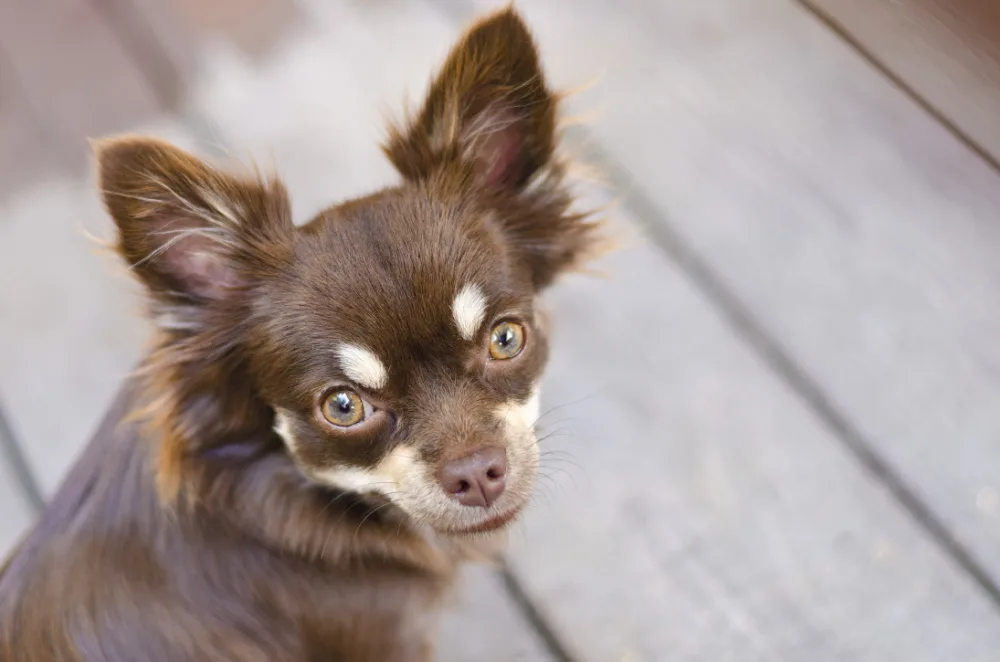
Identifying Chihuahua Characteristics
Personality
Chihuahuas are known for their charming and vivacious personalities. These little dogs often have big attitudes and are fiercely devoted to their owners. Chihuahuas may appear shy or reserved at first, but usually, they quickly warm up to people they trust and become affectionate companions.
Intelligence
Chihuahuas are intelligent and quick learners, making them responsive to training when done positively and consistently. Their intelligence allows them to quickly pick up on commands and tricks, and they enjoy engaging in mental stimulation activities such as puzzle toys and interactive games.
Loyalty
An unmistakable trait of Chihuahuas is their unwavering loyalty to their owners. They often form a strong bond with a single person and can become protective of them, displaying behaviors like barking, growling, or even snapping at strangers or other animals they perceive as threats.
Alertness
Chihuahuas are alert and vigilant dogs, often serving as excellent watchdogs. They are quick to notice unusual sounds or movements and are not afraid to alert their owners of potential dangers. Despite their small size, they can be quite vocal when they sense something is not quite right.
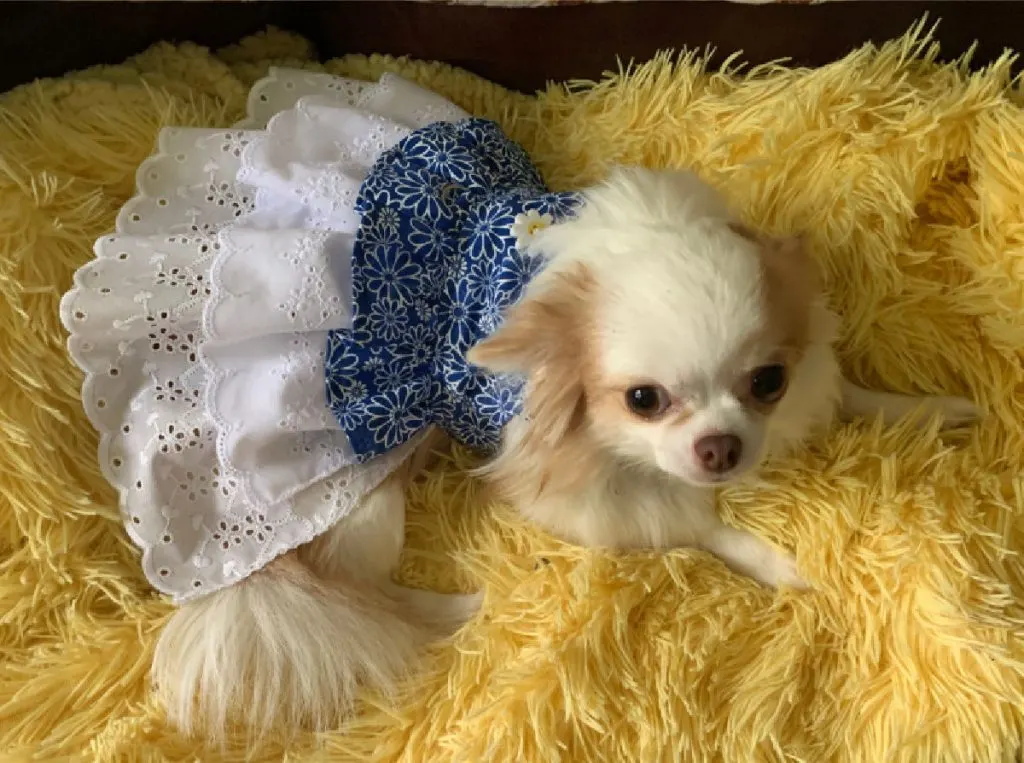
Assessing Lineage and Pedigree
Determining whether your Chihuahua is purebred involves assessing their lineage and pedigree through various sources and methods. The following subsections discuss the role of reputable breeders, the American Kennel Club registration, and pedigree documentation in identifying a purebred Chihuahua.
Reputable Breeder
One of the primary methods of verifying your Chihuahua’s pedigree is finding a reputable breeder. Reputable breeders follow ethical breeding practices and maintain accurate records of the lineage and ancestry of their dogs. They can provide you with valuable insight into your Chihuahua’s breeding history and ensure that it conforms to the breed standards.
American Kennel Club Registration
Another way to confirm the breed of your Chihuahua is by checking their registration with the American Kennel Club (AKC). The AKC is a widely recognized authority on dog breeds and maintains extensive records, including breed standards and pedigree documentation. If your Chihuahua is registered with the AKC, it is likely a strong indication that they are, in fact, purebred.
Pedigree Documentation
Pedigree documentation is an essential tool in tracing the lineage and ancestry of your Chihuahua. A well-maintained pedigree allows you to see if your dog has champions in its bloodline, which means that at least one of its parents or grandparents has won awards or titles in the past(AKC).
Obtaining pedigree documentation is particularly useful when it comes from a reputable breeder or the AKC. The documentation will help you understand your dog’s lineage and determine if they meet the various attributes associated with a purebred Chihuahua. Additionally, working with knowledgeable professionals, like veterinarians and breed experts, can further validate your Chihuahua’s pedigree information.
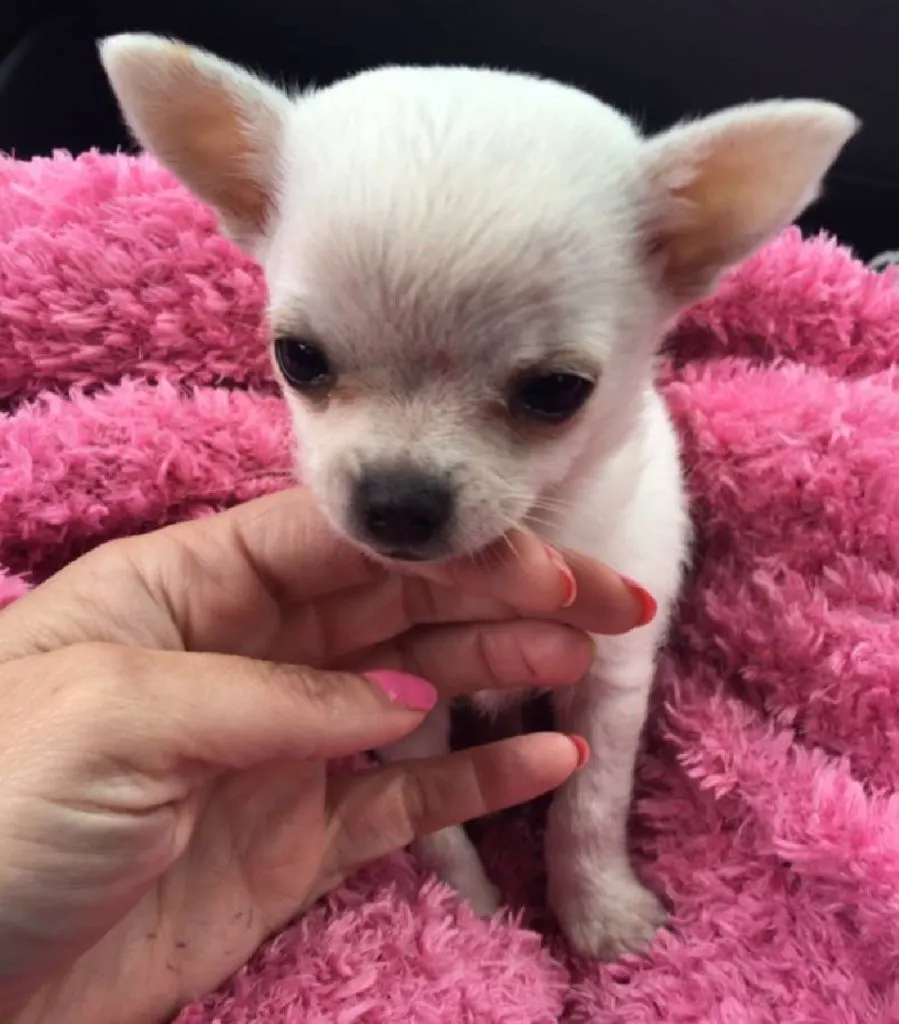
DNA Testing for Chihuahuas
DNA testing is an effective way to determine if a Chihuahua is purebred or mixed. This method involves collecting a DNA sample from the Chihuahua, typically by swabbing the inside of their cheek and sending it to a lab for analysis.
The results can be returned in a few days, and this method is more reliable than only assessing the physical appearance of the dog.
You can read more about our experience with DNA testing here.
Genetic Conditions
Aside from determining the purity of a Chihuahua, DNA testing can also be used to identify potential genetic conditions. This is particularly helpful as some genetic issues can affect the Chihuahua breed. Gaining this knowledge is vital for dog owners as it allows them to care for their Chihuahua better and prevent possible health problems.
Many DNA test kits include health screenings that can provide insights into the Chihuahua’s susceptibility to various diseases. These tests can aid in the early detection and management of health issues, ultimately ensuring a happier and healthier life for the Chihuahua.
In conclusion, DNA testing is a valuable tool for Chihuahua owners who want to ensure the purity of their dog and learn more about their pet’s health. By uncovering potential genetic conditions, owners can take appropriate measures to care for their Chihuahua and help them live a long, healthy life.
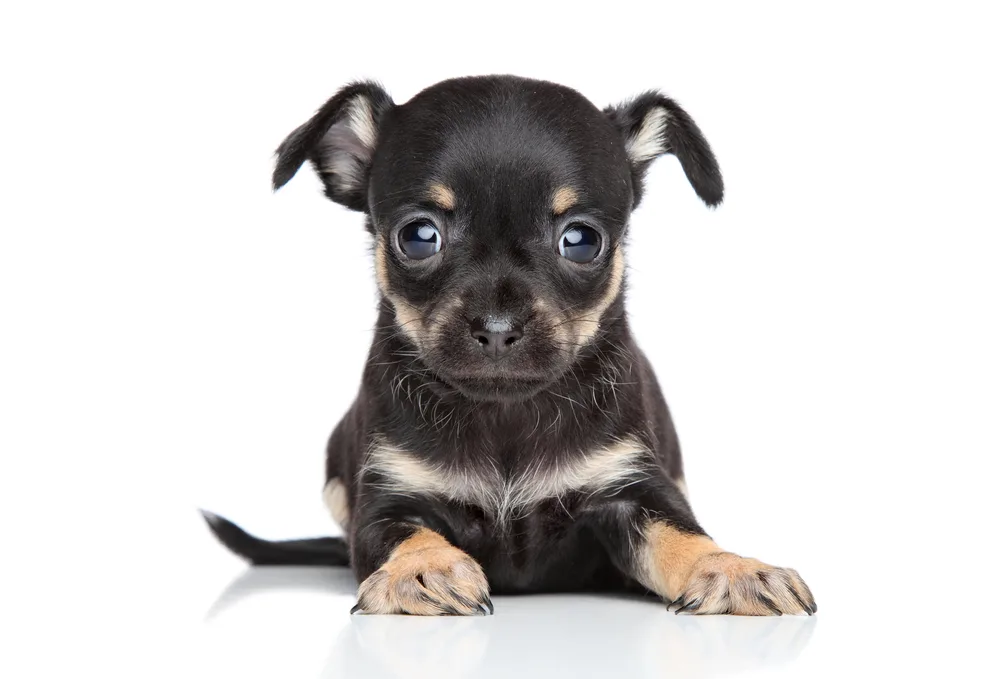
Mixed-Breed Chihuahuas
Chihuahuas are a popular breed, and as a result, they can often be found in a mixed breed with other types of dogs. Mixed-breed Chihuahuas will likely showcase a combination of traits from both parent breeds, making them unique and different from their purebred counterparts.
Identifying Mixed-Breed Dogs
One approach to identifying whether a dog is a mixed-breed Chihuahua includes looking for indications of more than one breed in the dog’s appearance. Mixed-breed Chihuahuas may have variations in their size and fur types. For example, some Chihuahua mixed breeds can be larger or smaller than purebred Chihuahuas, as they inherit traits from both parent breeds.
Physical features of mixed Chihuahuas, such as their ears, eyes, or coat pattern, may differ. For instance, a Bolo-Chi (Chihuahua and Bolognese mix) or a Chimation (Chihuahua and Dalmatian mix) will have distinct physical characteristics that indicate they are not purebred Chihuahuas. You can also observe their temperament and behavior, as mixed-breed Chihuahuas could have a blend of traits from both parent breeds.
When identifying tiny dog mixed breeds, such as a Chion (Chihuahua and Papillon mix), pay attention to their smaller size and the specific features inherited from both breeds. Their fur could be longer or shorter, and their ears and eyes might have a different shape compared to a purebred Chihuahua.
My Lucas is a Chorkie (Chihuahua and Yorkie mix. Here is what he looks like:

It is essential to remember that mixed-breed dogs can be just as affectionate, loyal, and fun-loving as any purebred dog. Whether a Chihuahua mixed breed or a purebred Chihuahua, these tiny dogs make wonderful companions for the right owners.
Final Thoughts and Tips
Choosing a Reputable Breeder
When looking for a purebred Chihuahua, one of the most important aspects is to find a reputable breeder. Reputable breeders are knowledgeable about the breed and prioritize the health and well-being of their puppies. They will be able to provide you with the necessary paperwork, such as pedigree papers, to prove their Chihuahua is purebred.
To find a reputable breeder, you can consult the American Kennel Club for a list of breeders who comply with their standards. It’s also crucial to visit the breeder in person if possible, or at least get on a Zoom call with them to observe the environment in which the puppies are raised, and ask questions about the Chihuahua’s lineage, health, and temperament.
Once you have chosen your Chihuahua, consult with an experienced veterinarian to gain insight into your Chihuahua’s lineage, and if necessary, consider performing a DNA test for further confirmation of its purebred status.
ALSO READ:
Is your Chihuahua an Apple head or a Deer head?


Cathy Bendzunas
Pet Blogger


Sherry
Saturday 10th of August 2024
Your article was very informative. I had both deer and apple head. I prefer the deer head. Sadly I have looked for about a year and cannot find a deer head male puppy, I live in Alabama, I lost my 14 year old deer head to kidney failure. Would you know of any breeders in Alabama? Thank you.
Cathy Bendzunas
Sunday 11th of August 2024
No, sorry Sherry, I don't know of any in Alabama.
Judy McDonald
Sunday 23rd of June 2024
I have a deer head and an apple head, both girls, and your article confirmed this. Their size, shape and personalities confirm that they are Chi breed. Thank you for this article.
Cathy Bendzunas
Sunday 23rd of June 2024
You're welcome Judy! Thanks for visiting.